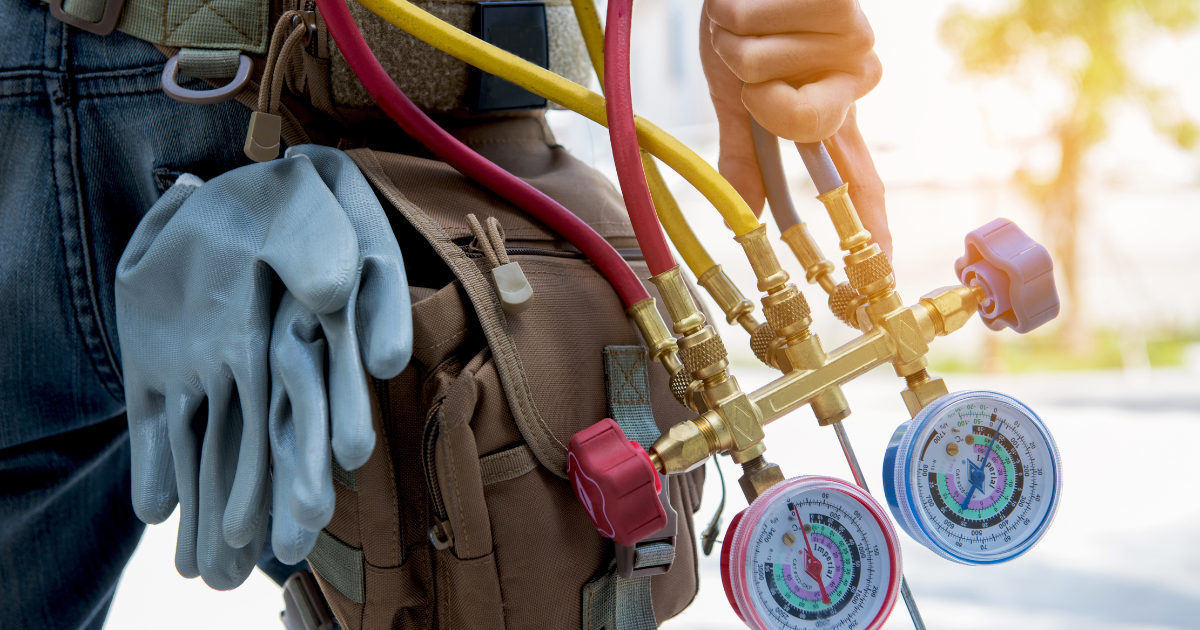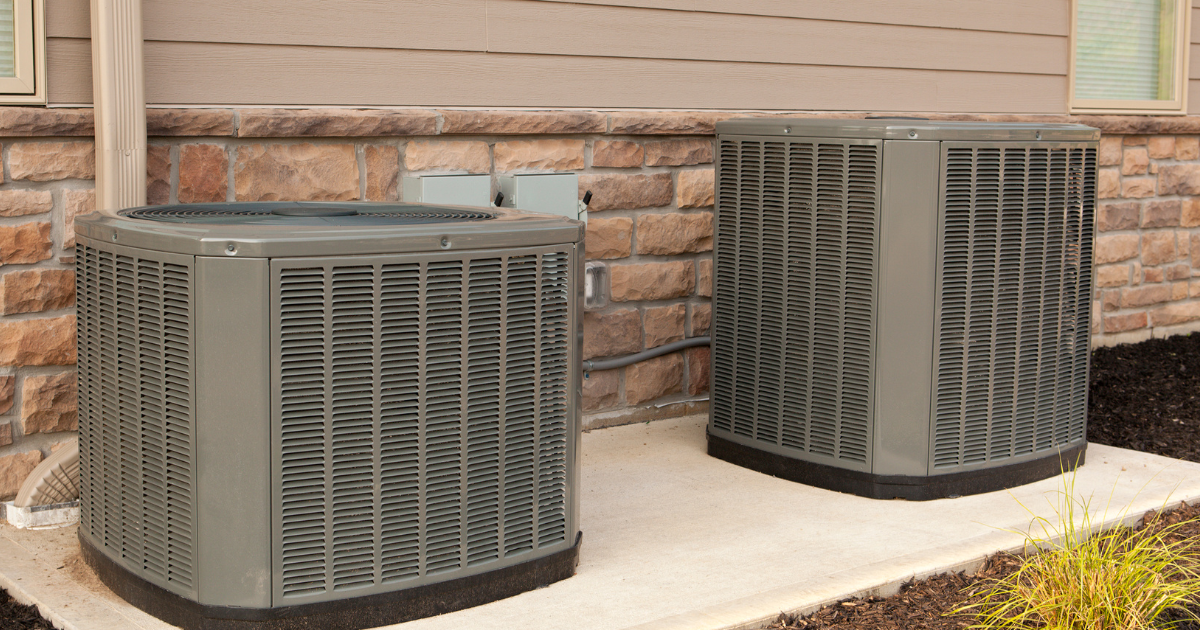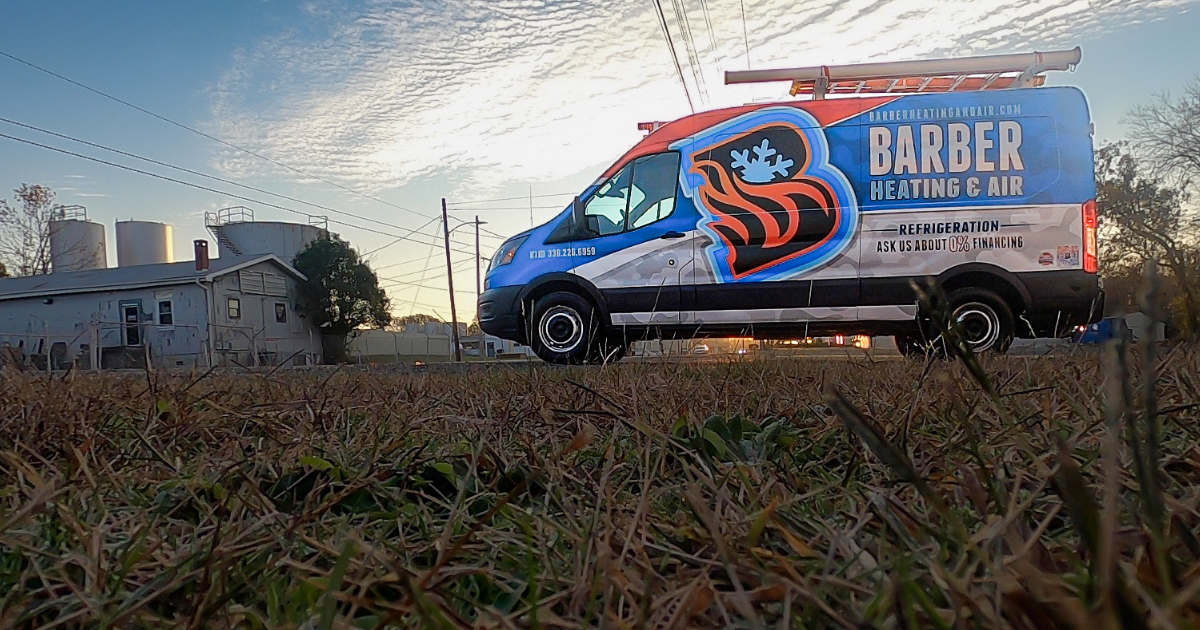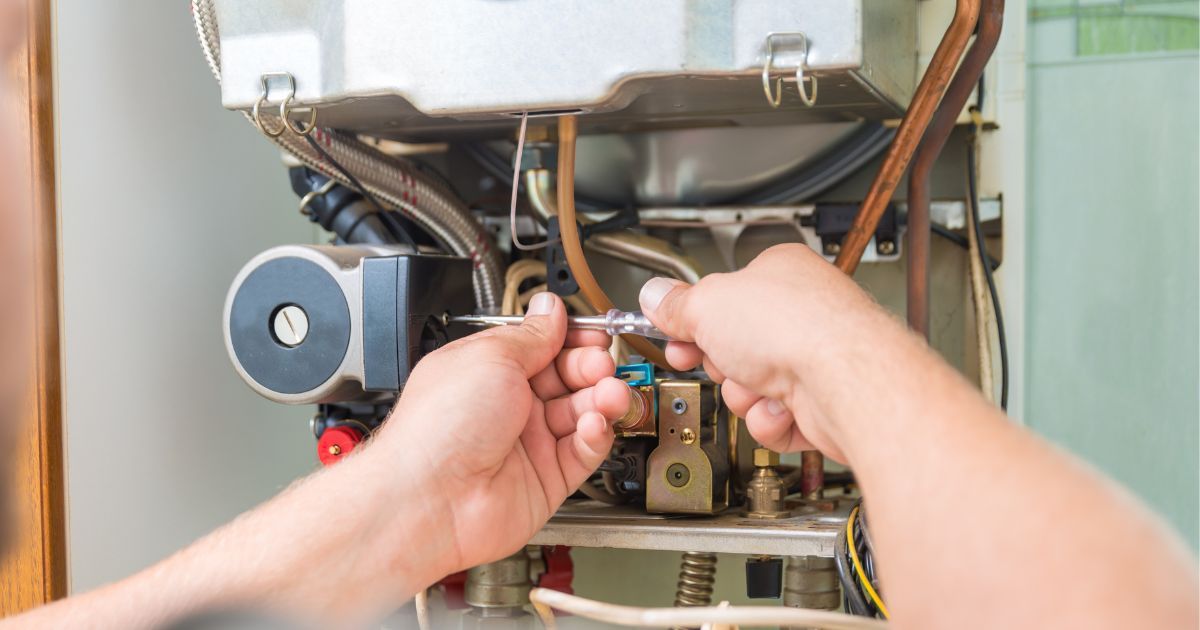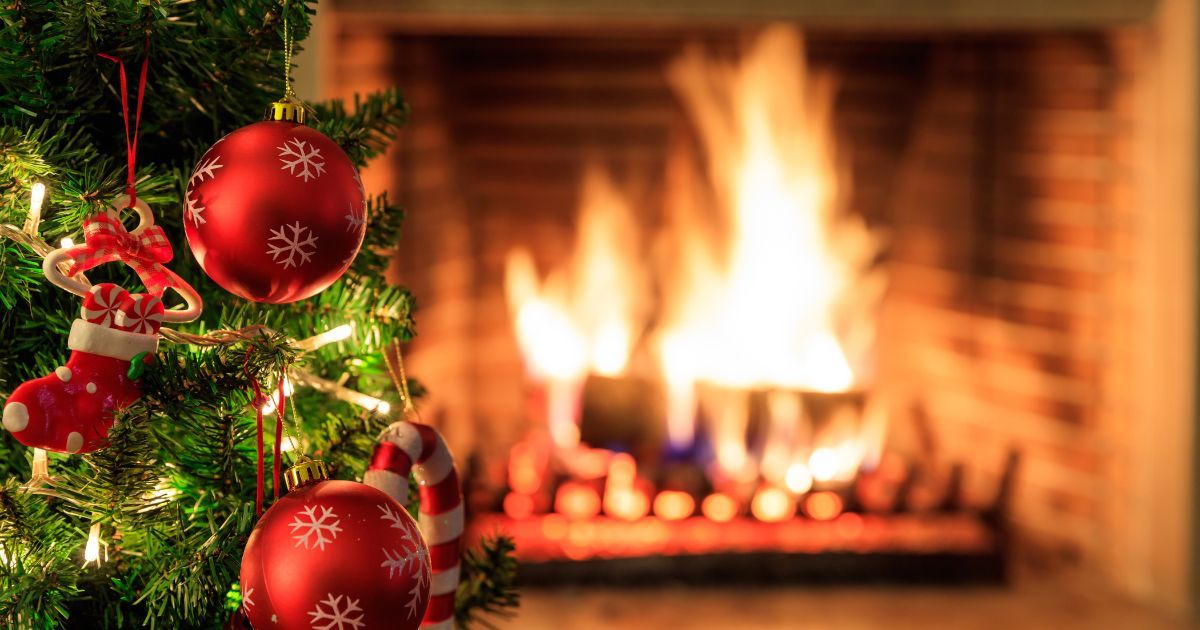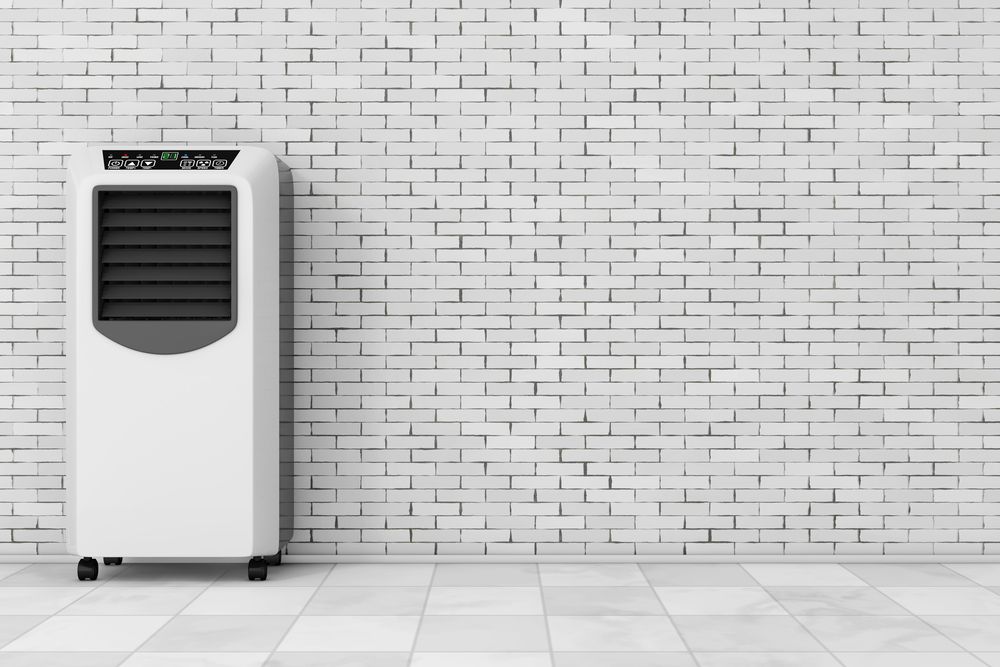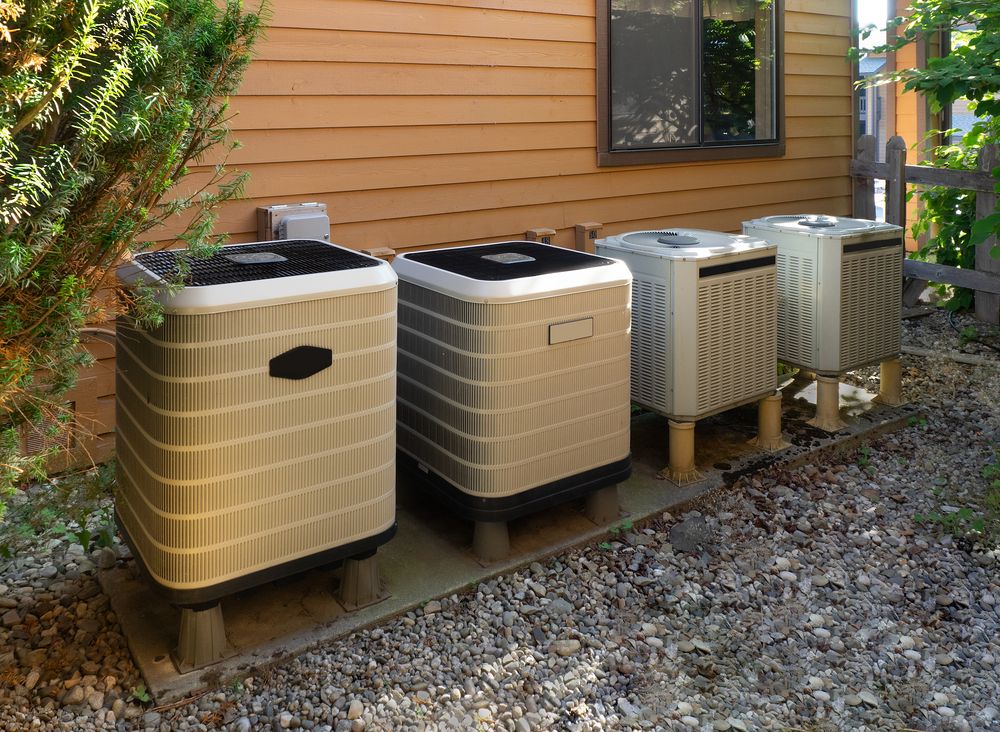Why Regular AC Maintenance Is Vital in Greensboro, NC
In Greensboro, NC, the sweltering heat of summer emphasizes the importance of a well-maintained air conditioning system. Regular AC maintenance here isn’t just about comfort; it’s a critical aspect of home care that ensures energy efficiency, extends the lifespan of your system, and improves the air you breathe.
In Greensboro, neglecting your AC can lead to discomfort, high energy bills, and unexpected breakdowns when you least want them. By investing in regular maintenance, homeowners can sidestep these pitfalls, enjoying a cool, comfortable home regardless of the outside temperature.
Understanding Greensboro’s Unique Climate and AC Needs
Nestled in the heart of North Carolina, Greensboro experiences a unique blend of weather patterns that directly impact the efficiency and longevity of air conditioning systems. High humidity levels, common in this region, can strain AC units, fostering an environment where molds thrive and efficiency dwindles.
Additionally, temperature fluctuations, ranging from sweltering summer highs to chilly evenings, demand that air conditioners swiftly adapt, subjecting them to increased wear and tear. Seasonal allergens, abundant in Greensboro’s landscapes, underscore the importance of meticulous air filtration to maintain indoor air quality.
High Humidity and Its Impact on Air Conditioning Systems
High humidity puts a significant strain on air conditioning systems in Greensboro, NC, particularly during the balmy summer months. As moisture accumulates, it can lead to an array of issues, notably the growth of mold within the HVAC system, which disrupts indoor air quality and poses health risks to residents.
This excessive moisture doesn’t only foster mold; it forces air conditioners to work overtime, cooling and dehumidifying the home. Such constant operation can accelerate wear and tear on components like the compressor and evaporator, leading to premature breakdowns and costly AC maintenance or emergency AC service needs.
Why Greensboro Homes Can Benefit From Regular AC Check-Ups
Regular AC check-ups in Greensboro homes stand as a cornerstone of preserving a comfortable indoor environment, especially during unpredictable and often harsh seasonal shifts. By proactively scheduling maintenance, homeowners ensure their systems are prepared to handle the high humidity and temperature swings that characterize the region, thus preventing the discomfort and health risks associated with poor air quality and system failures.
Homes that prioritize regular check-ups experience fewer emergency repairs, enjoy extended equipment lifespans, and benefit from lower energy bills thanks to optimized system efficiency. Such savings, coupled with the tranquility of a reliably cool home, make routine AC maintenance an undeniable advantage for Greensboro residents.
Boosting Energy Efficiency With Regular AC Maintenance
Ensuring clean filters is not just a simple task; it’s a foundational step toward reducing energy bills, as it allows the AC system to operate more smoothly and intake air without straining itself. Similarly, the coil, a critical component in the cooling process, requires regular cleaning to prevent the system from working harder than necessary, which in turn, keeps energy consumption in check.
Sealing leaks in the ductwork or around windows and doors play a crucial role in maintaining optimal cooling performance, preventing the cool air from escaping and the hot air from infiltrating. To knit these efforts together and truly ensure that an AC system operates at peak efficiency, scheduling professional maintenance with Barber Heating & Air becomes indispensable.
Scheduling Professional Maintenance to Ensure Energy Efficiency
Scheduling professional maintenance is the linchpin for ensuring that air conditioning systems in Greensboro, NC, reach their utmost energy efficiency. The practice of entrusting seasoned experts with the care of an AC unit guarantees precise calibration and meticulous cleaning, tasks that are essential for minimizing energy consumption and optimizing cooling performance.
A professional AC service not only scrutinizes the system for current inefficiencies but also identifies potential issues that could escalate into energy-draining problems. By catching these early, homeowners can avoid the excessive electricity use and high utility bills that often accompany an AC system straining under the North Carolina heat.
Extending Your Air Conditioner’s Lifespan in Greensboro
Regular upkeep not only curtails the natural progression of wear and tear but also identifies potential issues before they escalate into substantial malfunctions.
By updating components per the latest efficiency standards, homeowners can ensure their units aren’t just running, but running optimally. Professional inspections with Barber Heating & Air serve as a preventive measure against sudden breakdowns, keeping your system in prime condition to weather the seasonal challenges of the region.
This multifaceted approach to AC maintenance is essential for extending the lifespan of your cooling system, safeguarding your comfort, and optimizing energy use throughout the sultry summer months.
Identifying Wear and Tear Before It Leads to Major Problems
Spotting wear and tear early is a critical step in circumventing major issues that can lead to system failure or the need for costly emergency AC service in Greensboro. Regular maintenance checks enable technicians to detect minor problems, such as a fraying belt or a leak in the refrigerant line, which, if left unaddressed, could significantly impair the AC unit’s function and efficiency.
Spring Check-Ups to Address Winter Wear and Tear
As Greensboro transitions from the chill of winter into the warmth of spring, air conditioning systems require a thorough check-up to identify any wear and tear that colder months might have inflicted. This essential spring maintenance ensures that all parts, especially those susceptible to the cold, like the compressor and refrigerant lines, are in prime condition to handle the upcoming heat without faltering.
Technicians during these spring evaluations pay close attention to potential issues that winter’s harshness may have caused, such as cracks in the electrical wiring or blockages in the drainage system. Resolving these problems early on prevents them from evolving into larger, more expensive repairs, setting the stage for a summer of seamless cooling performance in Greensboro homes.
Adjusting Settings and Inspections for Optimal Seasonal Performance
Professionals adept in AC maintenance engage in these seasonal inspections with an eye for detail, optimizing programmable thermostats, airflow, and system configurations for summer’s heat or winter’s chill. This fine-tuning, a critical component of peak performance, shields homeowners from unexpected breakdowns and maintains an equilibrium between energy consumption and comfort, securing a serene living environment all year round.
How Maintenance Contracts Can Save Money in the Long Term
Maintenance contracts with Barber Heating & Air in Greensboro, NC, are designed to offer homeowners peace of mind through consistent, scheduled care for their air conditioning systems. By locking in services at today’s rates, these agreements protect against the inflation of repair costs over time, offering substantial savings as a part of a long-term budgeting strategy.
Such contracts typically prioritize preventive measures that significantly reduce the likelihood of major malfunctions. This proactive approach diminishes the need for emergency services, further curbing potential expenses and ensuring that air conditioners operate with optimal efficiency, thereby extending their service life and enhancing household comfort.
Necessity of Routine AC Maintenance in Greensboro, NC
Regular AC maintenance in Greensboro, NC, is crucial due to the city’s unique climate challenges, including high humidity, temperature fluctuations, and abundant seasonal allergens. These conditions strain AC systems, making them susceptible to wear and tear, mold growth, and reduced efficiency.
By prioritizing regular check-ups, homeowners can prevent common issues, safeguard indoor air quality, and extend the lifespan of their units. Professional maintenance ensures systems operate within regulatory compliances and warranty requirements while optimizing energy efficiency to keep utility costs in check.
Ultimately, regular AC maintenance in Greensboro protects the investment in home comfort systems, ensures a healthier living environment, and offers peace of mind through the region’s unpredictable weather shifts.
